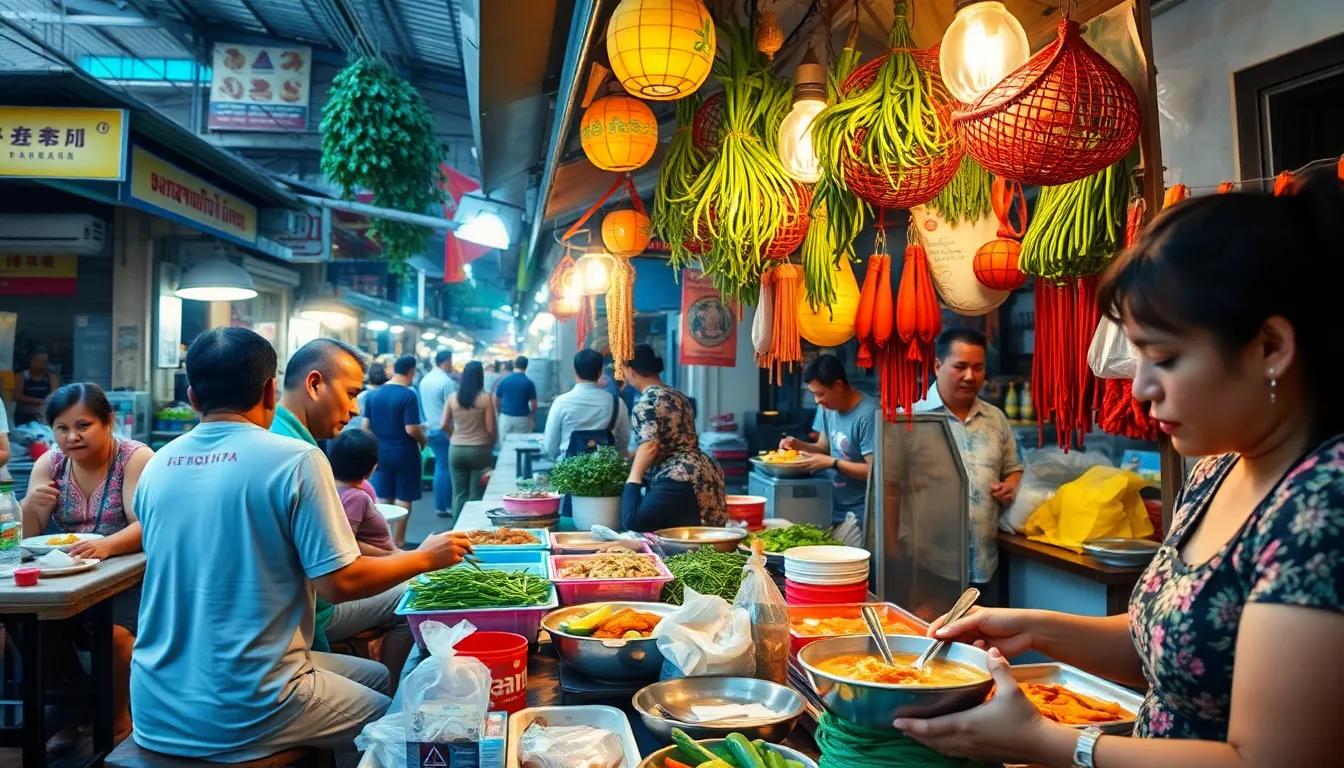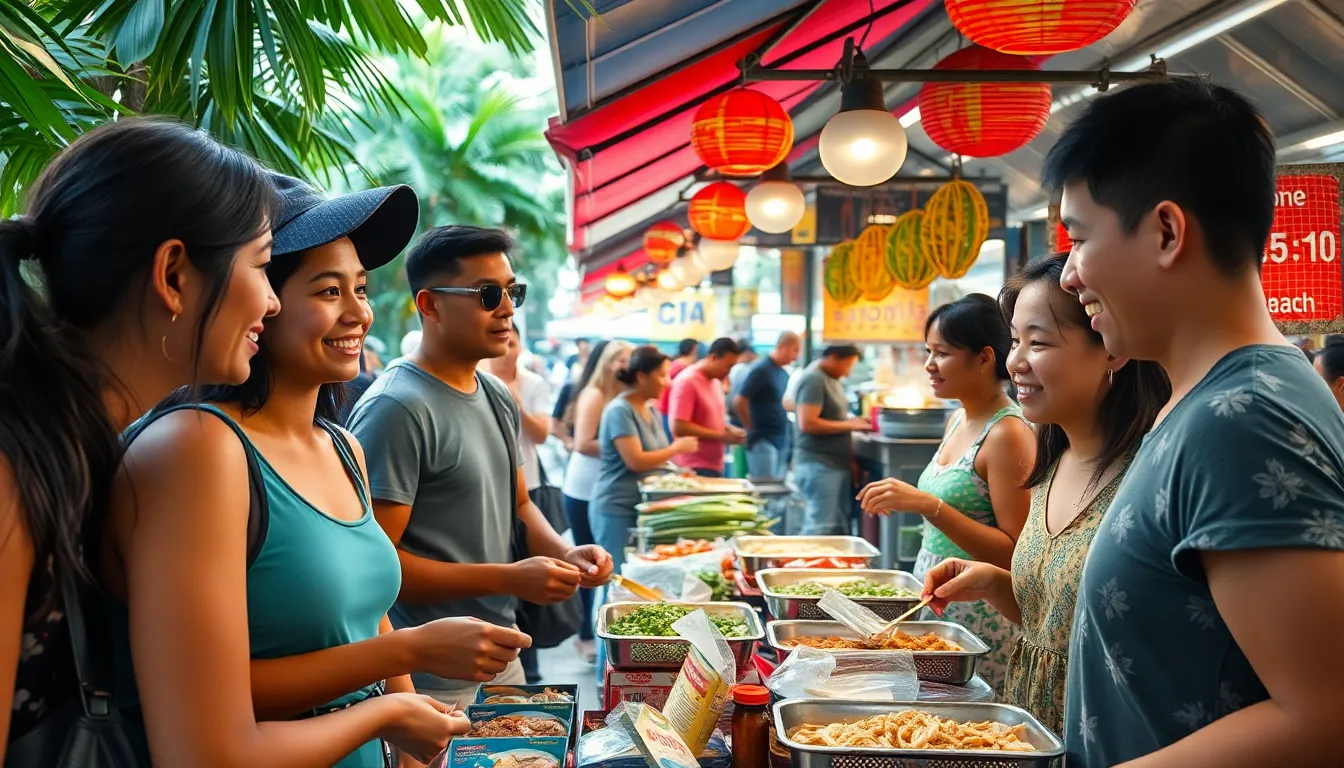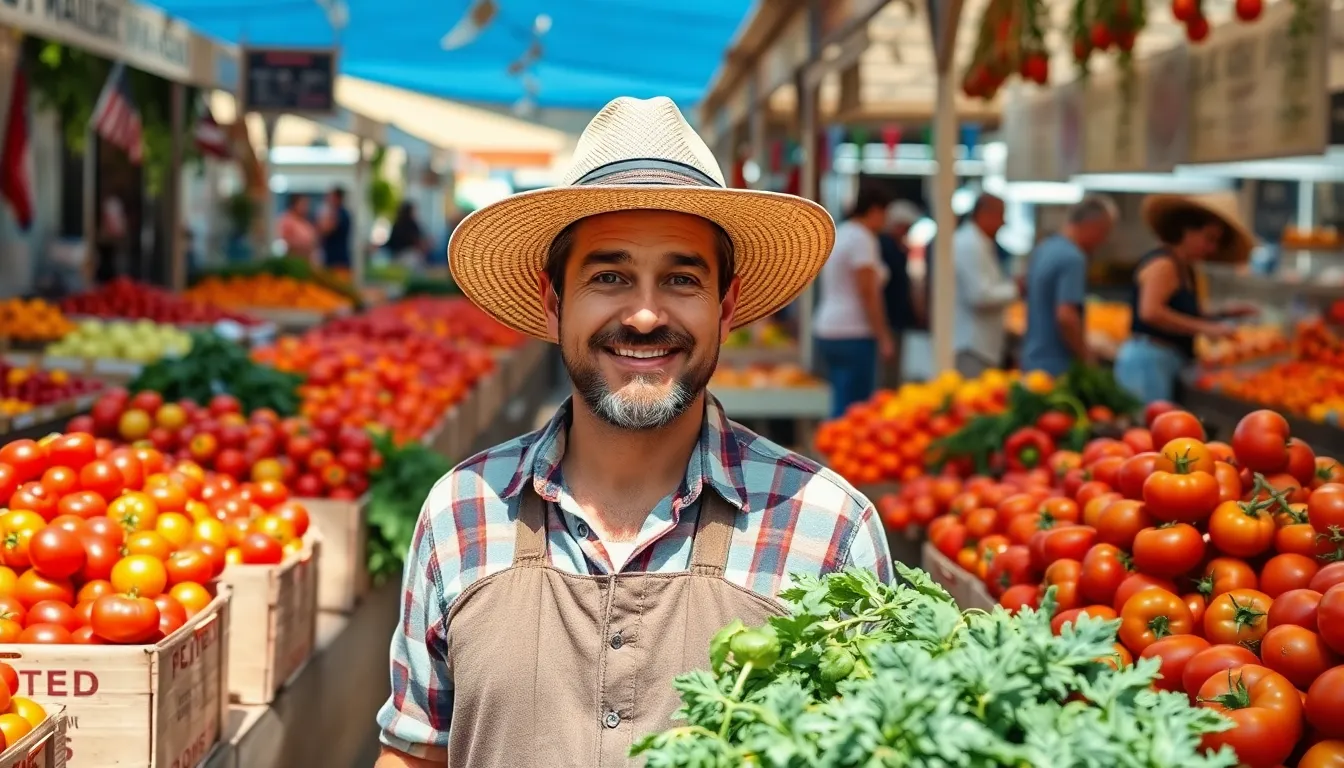Traveling isn’t just about discovering new places; it’s also a journey of the senses, especially taste. Exotic food travel invites adventurous souls to explore unique culinary landscapes that tantalize the palate and broaden horizons. From fragrant spices in bustling markets to street food stalls serving up local delicacies, every bite tells a story.
For food lovers, the thrill of trying unfamiliar dishes can be as exhilarating as the sights and sounds of a new destination. Whether it’s savoring the rich flavors of Moroccan tagine or indulging in the vibrant street food of Thailand, these experiences create lasting memories and deepen cultural understanding. Embracing exotic cuisine opens doors to the heart of a destination, making every meal an adventure worth savoring.
Table of Contents
ToggleOverview Of Exotic Food Travel
Exotic food travel involves seeking unique culinary experiences while exploring new destinations. Travelers engage with local traditions and flavors by tasting dishes like Ethiopian injera or Indian biryani. Each region presents distinct ingredients and cooking methods that reflect its cultural heritage, allowing travelers to appreciate the diversity of global cuisine.
Exotic food travel also nurtures connections. Dining with locals, whether in bustling markets or family-run restaurants, creates opportunities for dialogue and cultural exchange. Traveling enhances understanding and appreciation for different lifestyles through shared meals and culinary storytelling.
Importantly, exotic food travel can promote sustainability. Supporting local markets and farms helps preserve traditional cooking practices and empowers communities. Travelers contribute to the economy while enjoying authentic food experiences by choosing locally sourced ingredients and supporting family-owned eateries.
Food experiences often become central to travelers’ itineraries. Guided food tours, cooking classes, and market visits provide deeper insights into a destination’s culinary practices. Engaging with local chefs or food artisans fosters an enriching experience that transcends typical tourist visits.
Popular Destinations For Exotic Food Travel

Exotic food travel invites culinary enthusiasts to explore unique tastes and traditions around the globe. Below are notable regions known for their diverse and vibrant cuisines.
Southeast Asia
Southeast Asia serves as a treasure trove of flavors and culinary practices. Countries like Thailand, Vietnam, and Indonesia offer dishes that embody local ingredients and cultural heritage.
- Thailand: Street food stalls buzz with energy, presenting offerings like Pad Thai and Tom Yum soup, which feature bold spices and fresh herbs.
- Vietnam: Pho, a fragrant noodle soup, epitomizes Vietnamese cuisine, often prepared with aromatic broth, herbs, and various meats.
- Indonesia: Nasi Goreng, a fried rice dish, provides a savory taste, combining spices, chicken, and vegetables, often topped with a fried egg.
Travelers can also participate in cooking classes and food tours, providing deeper insights into authentic preparation methods and local market dynamics.
Latin America
Latin America showcases a rich culinary landscape rooted in tradition and diversity. Destinations such as Mexico, Peru, and Brazil highlight the region’s vibrant flavors and unique dishes.
- Mexico: Tacos and mole represent the dynamic food culture, using fresh produce and spices, with each state boasting its signature versions.
- Peru: Ceviche, made with fresh fish marinated in citrus juices, captures the essence of coastal cuisine, often accompanied by sweet potatoes and corn.
- Brazil: Feijoada, a hearty black bean stew with meats, reflects Brazilian heritage, typically served with rice, collard greens, and orange slices.
Visitors to Latin America engage with local chefs and markets, fostering a deeper appreciation for indigenous ingredients and culinary traditions.
Unique Culinary Experiences
Travelers can immerse themselves in extraordinary culinary opportunities that showcase local flavors and traditions. Unique experiences, such as street food adventures and traditional cooking classes, enrich the journey and deepen cultural connections.
Street Food Adventures
Street food represents local culture and everyday life. Travelers can explore bustling markets and food stalls, sampling savory delights like Vietnamese banh mi, Indian samosas, or Jamaican jerk chicken. Engaging with local vendors reveals the techniques and stories behind each dish. Travelers often experience creative presentations and innovative flavors, from fusion tacos in Mexico City to gourmet food trucks in Portland. Street food adventures offer authentic, affordable dishes that capture the essence of a destination.
Traditional Cooking Classes
Traditional cooking classes provide hands-on experiences that deepen culinary understanding. Travelers participate in preparing local dishes, guided by expert chefs or home cooks. They gain insight into regional ingredients, cooking techniques, and family recipes. Classes often take place in unique settings, like family kitchens or local markets, enhancing the connection to culture. Participating in a Thai cooking class may involve selecting fresh produce at a market, while an Italian class might focus on making pasta from scratch. Engaging in these classes often creates lasting memories and practical skills for future culinary adventures.
Challenges Of Exotic Food Travel
Exotic food travel presents several challenges that travelers must navigate to fully enjoy their culinary adventures. Recognizing the following issues can enhance the overall experience.
Health Considerations
Health considerations play a crucial role in exotic food travel. Travelers may encounter unfamiliar ingredients and preparation methods that could pose health risks. Contaminated food or water can lead to foodborne illnesses, so it’s essential to prioritize safety. Researching local hygiene standards, opting for well-reviewed establishments, and consuming bottled or purified water significantly mitigate such risks. Additionally, be mindful of personal food allergies and intolerances, as ingredients may vary from what is familiar.
Cultural Sensitivity
Cultural sensitivity remains vital while exploring exotic cuisines. Each culture has its own culinary traditions, and respecting these practices fosters meaningful interactions. It’s important to understand dining etiquette, such as appropriate table manners, communal dining practices, and dietary restrictions. Approaching local customs with an open mind enhances the travel experience and facilitates authentic connections with locals. Additionally, this awareness can prevent misunderstandings during shared meals, promoting positive cultural exchanges.
Exotic food travel opens up a world of flavors and experiences that enrich a traveler’s journey. By embracing local cuisines and culinary traditions travelers not only taste unique dishes but also connect deeply with the culture and people of their destinations. Each meal becomes a story waiting to be discovered fostering appreciation for diverse culinary practices.
Navigating the challenges of health and cultural sensitivity ensures a respectful and enjoyable experience. With every bite travelers create lasting memories and gain insights that go beyond the plate. Ultimately exotic food travel transforms trips into unforgettable adventures filled with flavor and connection.





